Labradors have held the top spot in America’s heart for decades — and for good reason. They’re friendly, loyal, and endlessly adaptable, making them the perfect fit for families, singles, and seniors alike. Whether they’re playing fetch with the kids or cuddling up after a long day, Labs bring a special kind of warmth to any home. Their intelligence and eagerness to please also make them top choices for service work, from therapy to search and rescue. Plus, that goofy smile and wagging tail? Totally irresistible. Labradors aren’t just pets — they’re true-blue companions through every stage of life. It’s no wonder they’re a household favorite across the country.
The Golden Popularity Streak That Made History
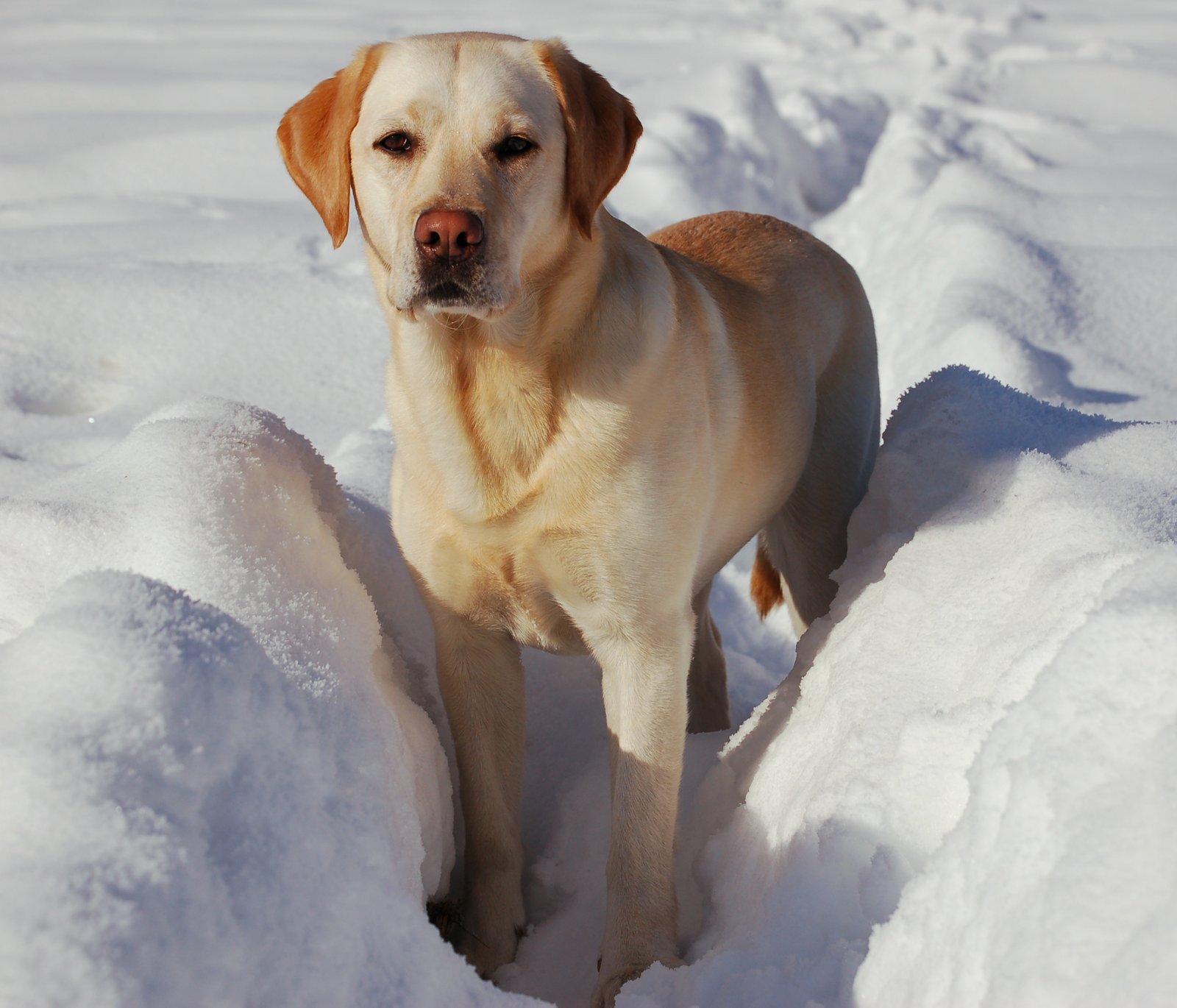
Did you know that Labradors held America’s top dog spot for an incredible 31 consecutive years? From 1991 to 2022, these lovable pups dominated the American Kennel Club rankings like no other breed before them. While the French Bulldog recently claimed the number one position, Labs still remain firmly planted in the hearts of millions of Americans as the second most popular breed. This isn’t just a flash in the pan — it’s a testament to something truly special about these four-legged companions. The fact that no other breed has achieved such a lengthy reign speaks volumes about what makes Labradors so irresistible to American families.
The Perfect Family Temperament That Wins Hearts
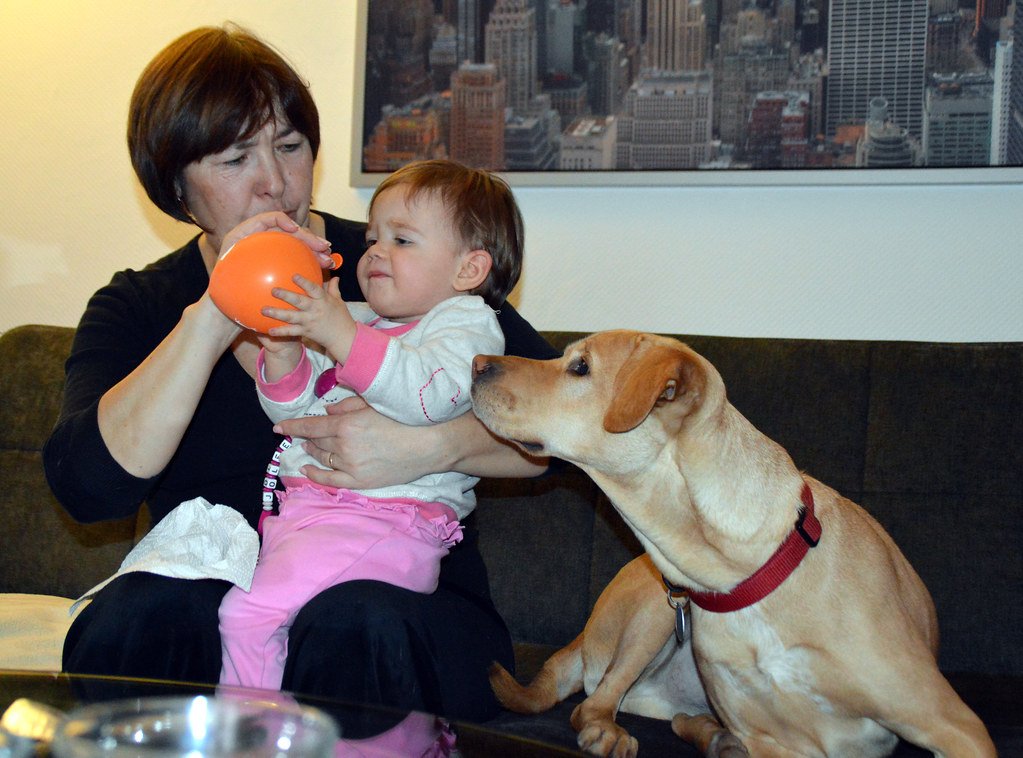
The Labrador Retriever temperament makes for a fantastic family dog, as they are very patient with children, friendly to strangers, and social around other dogs. What really sets Labs apart is their remarkable ability to read the room — they seem to instinctively know when to be playful and when to be calm. Their cheerful, eager-to-please personalities don’t just make them easy to manage around strangers or unfamiliar environments, but within the home too.
Picture this: your toddler is having a meltdown, and your Lab simply walks over and gently places their head on the child’s lap, offering comfort without being told. The Labrador’s gentle and patient temperament makes them exceptional companions for children, earning them the reputation of being one of the best family dogs. It’s this natural emotional intelligence that makes them feel less like pets and more like family members who truly understand us.
Intelligence That Makes Training a Joy
Let’s be honest — some dogs make you wonder if they’re plotting world domination, while others make you question if there’s anything going on upstairs at all. Labs hit that sweet spot perfectly. While they’re not going to have the vast mental flexibility of a German Shepherd, they’re just the right amount of intelligent which allows them to pick up quickly, adapt, and contain these ‘lessons’ in their memory. Along with Golden Retrievers and Poodles,
Labrador Retrievers are considered one of the smartest dog breeds, with their large, block-shaped head actually allowing for increased brain size! What makes them truly special is how they combine smarts with enthusiasm. They’re highly affectionate, easily trainable, aim to please, and love to play. Training a Lab often feels more like playing games with a eager friend than drilling commands into a stubborn student.
The Service Dog Champions of America
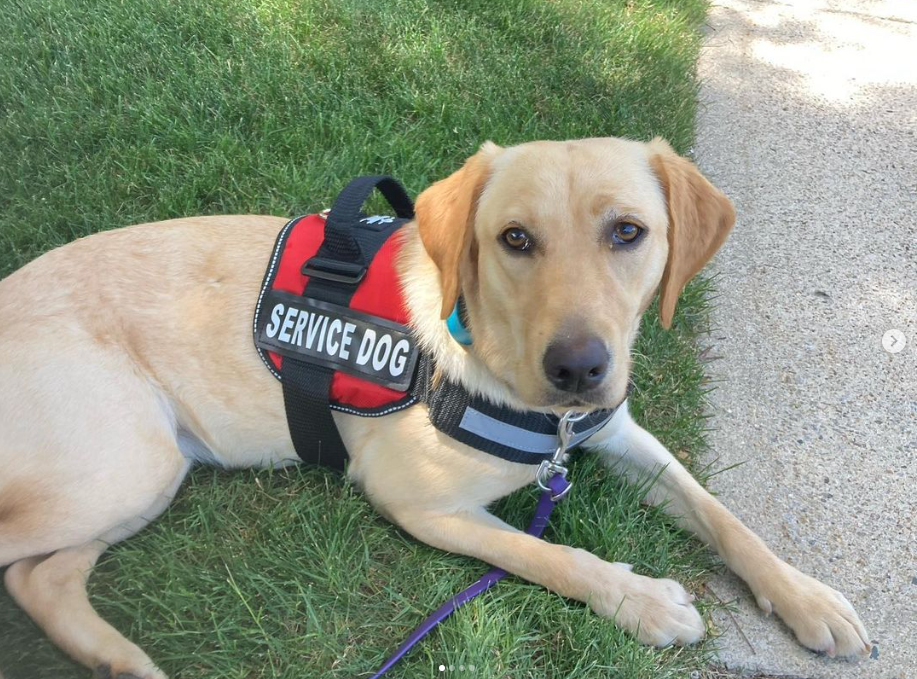
When you think of a service dog, chances are you’re picturing a Labrador — and there’s a good reason for that. Labrador retrievers are the most versatile service dogs, as Labs can be trained to do any of the service dog jobs to perfection. The Labrador Retriever temperament is a thing of such stability and grace, that these canines are the number one therapy dog in America, naturally charismatic and happy. From guiding the blind to detecting seizures, from providing PTSD support to alerting to dangerous blood sugar levels, Labs excel in roles that literally save lives.
Assistance dogs can learn over 60 cues and perform tasks that help individuals in a variety of ways, including alerting to medical episodes, interrupting anxious behaviors, finding help, or supporting someone’s balance. What’s remarkable is how they balance intense professional training with maintaining their loving, approachable nature.
Size That’s Just Right for Everything
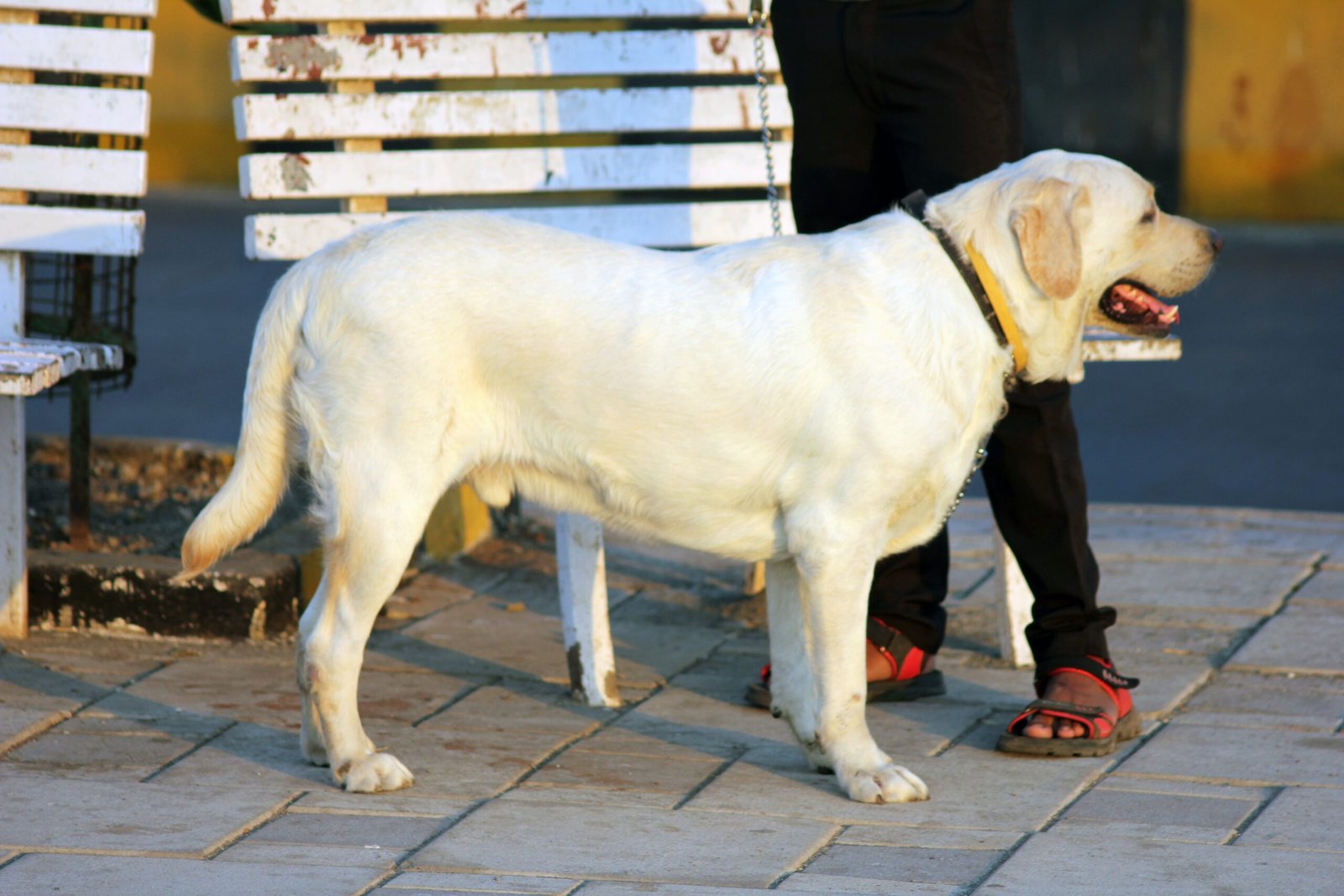
Goldilocks would absolutely love Labradors — they’re not too big, not too small, but just right for virtually every situation. Typically weighing an average of 55 to 70 pounds, they strike the perfect balance between being large enough to perform tasks like mobility support and small enough to interact easily in public spaces without becoming unwieldy. Try cuddling with a Great Dane on your couch (good luck), or asking a Chihuahua to retrieve your dropped keys — you’ll quickly appreciate the Lab’s perfect middle ground.
A Labrador’s medium size opens up a broader array of possibilities, allowing them to succeed in programs with varied needs, from retrieving dropped objects to pulling wheelchairs to providing deep-pressure therapy. Whether you’re living in a city apartment or a sprawling ranch, Labs adapt their energy to fit your space while still being substantial enough to feel like a “real dog” to kids and adults alike.
Water Dogs Born to Swim
Forget expensive swimming lessons — Labs come with aquatic skills pre-installed! As is evidenced by their name, Labrador retrievers were bred and selected for their outstanding retrieving abilities, particularly in water, having worked as partners with duck hunters in all kinds of weather and conditions. Labs have an athletic build, sturdy legs, and webbed feet, which are perfect for swimming (one of their favorite activities).
Labrador Retrievers love water—in fact, the breed got their start working alongside fishermen—and today, they are great companions for families who like to spend a lot of time outdoors swimming, hiking, or hunting. Watch a Lab discover a lake for the first time, and you’ll witness pure joy in motion. Their short, dense coat that repels water means they’re always ready for an impromptu beach day, making them perfect companions for America’s water-loving families.
The Ultimate Retrieval Instinct
Some dogs chase balls, Labs live for them. Originally bred as retrieving dogs for fishermen, they possess a strong instinct to fetch and carry objects, making them excellent partners for outdoor activities such as hiking, swimming, and retrieving games. But this isn’t just about playing fetch in the backyard — though they’ll happily do that for hours.
It should always be remembered that Labradors are water retrievers at heart and from early on, puppies show a strong desire to carry things around with them and a strong attraction to water, even puddles! It’s imperative the breed maintains its instinct to retrieve — it, after all, is a retriever — and we must keep the perfect Labrador temperament. This instinct transforms mundane activities into adventures. Need the newspaper? Your Lab’s on it. Dropped your keys? Consider them retrieved. It’s like having a furry personal assistant who never complains about overtime.
Social Butterflies Who Love Everyone
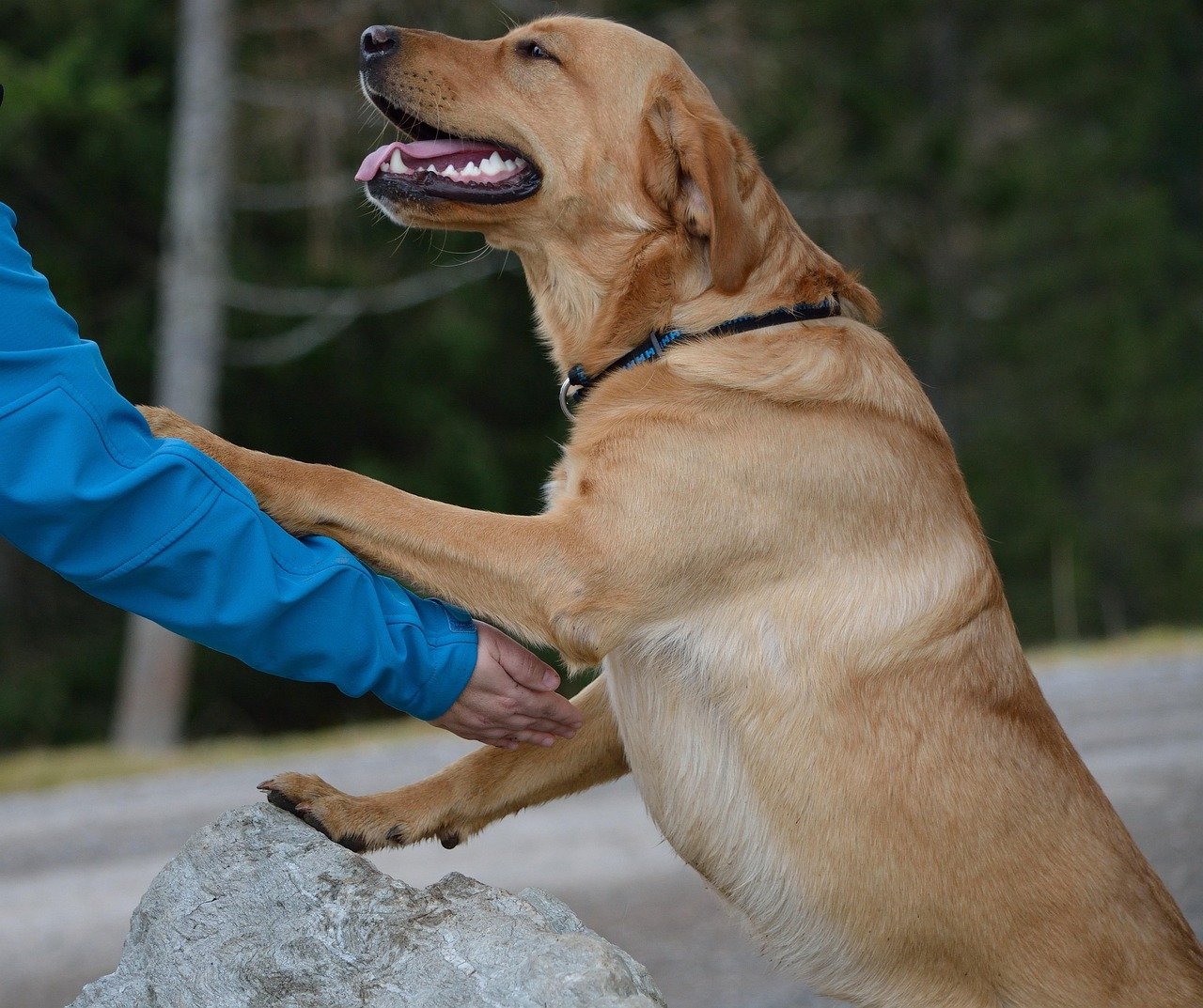
If Labs had social media accounts, they’d have millions of followers and zero enemies. These affable pups are likely to get along with everyone (even strangers), with a naturally outgoing personality and love to interact with humans, and they’re usually friendly with other animals. Labs typically aren’t aggressive dogs as long as they are well trained and socialized, tend to love people and are even open to strangers.
Labrador Retrievers are not only warm to their owners, but tend to get along well with strangers and other dogs too, with their playful, easygoing nature helping them adapt to different environments. It’s almost comical how Labs approach new situations — while other dogs might be cautious, Labs waltz in like they’re arriving at their own welcome party. This social nature makes them perfect for families who love entertaining, kids who want playmates, and anyone who enjoys meeting new people on their daily walks.
Athletic Abilities That Impress
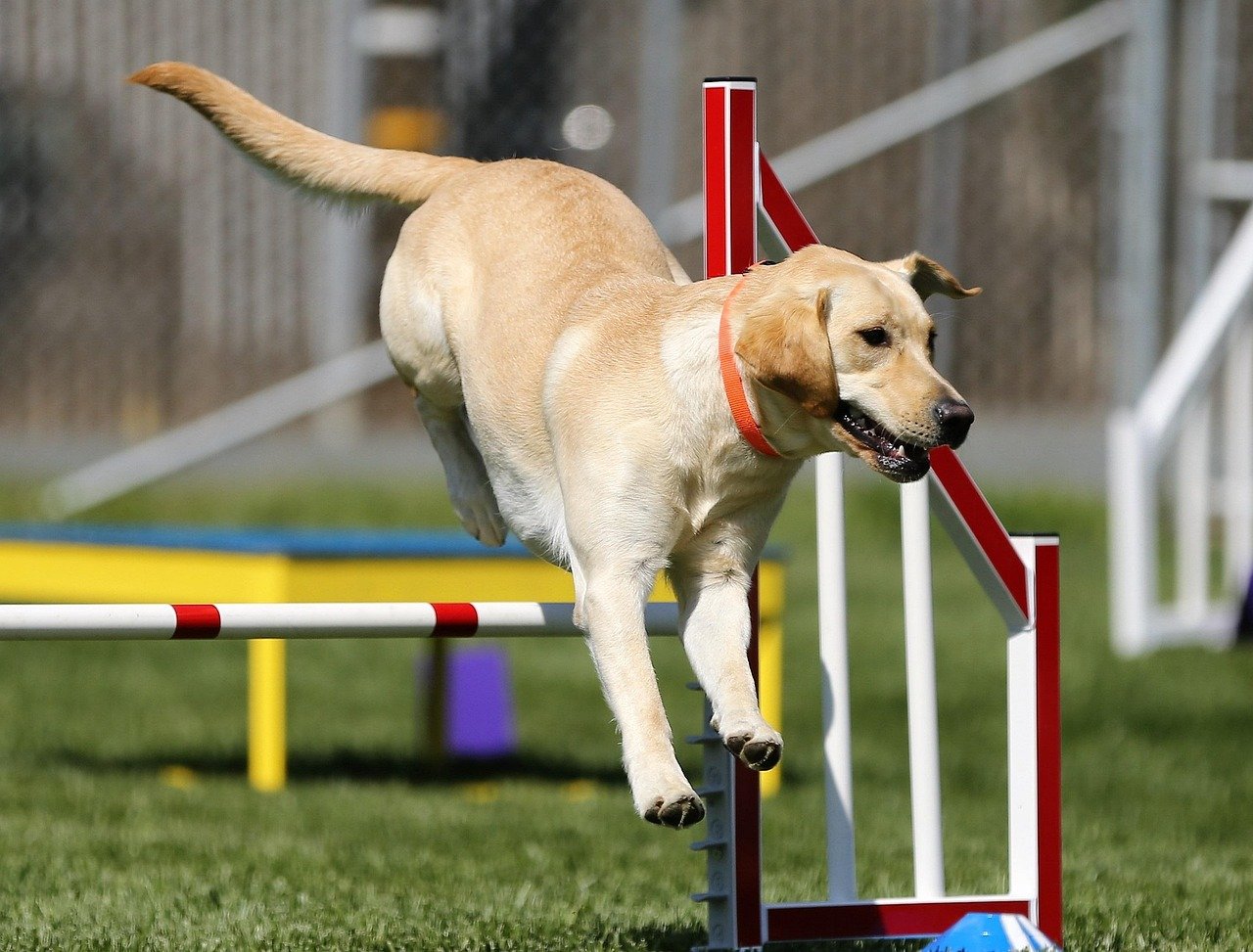
Don’t let that goofy grin fool you — Labs are serious athletes when they want to be. Labrador Retrievers are highly versatile and athletic dogs who thrive in various sports and competitions, including agility, obedience trials, and dock diving. Labradors need a lot of exercise, and love playing fetch and swimming, while Labs are also strong contenders for dog sports, showing particular skills in obedience, agility, tracking, and dock-diving.
Picture a Lab launching themselves off a dock, flying through the air with Olympic-level determination to retrieve a tennis ball — it’s pure poetry in motion. Their athletic prowess isn’t just for show; it’s functional. Whether you’re a weekend hiker, a beach volleyball enthusiast, or someone who enjoys morning jogs, Labs will match your energy and probably outlast you. Cheerful and animated, this pup has energy to spare, making Labs perfect for an active pet parent or a family always on the go.
Working Heritage That Runs Deep

The history of the Labrador Retriever begins in Newfoundland, Canada, where they were originally bred as working dogs to assist fishermen by retrieving nets, ropes, and fish from the cold Atlantic waters, known as St. John’s dogs, prized for their strong swimming ability and work ethic. This isn’t just ancient history gathering dust — it’s the foundation of everything that makes Labs special today. While many of their ‘work-like’ traits have run dormant, these dogs are still a working-class animal, with their enthusiasm and energy often coming from a shortage of stimulation, the desire for work, and their strong athletic bodies.
Historically, Labrador Retrievers were bred as a gentleman’s hunting dog, meant to wait by its owner’s side until it was time to retrieve game like duck or pheasant, with their capacity to actively perform commands or happily sit by their owner’s side for long periods. This working DNA means Labs don’t just want to be pets — they want to be partners, teammates, and contributors to the family unit.
Health That Supports a Long Partnership
Nobody wants to fall in love with a dog only to spend more time at the vet than at the dog park. While Labs aren’t immune to health issues, they’re generally robust dogs with impressive longevity. The average Labrador Retriever lifespan is 11–13 years, and they are generally a healthy breed. Labs are usually healthy dogs, and responsible breeders should screen for health conditions. What sets good Lab breeders apart is their commitment to health testing.
We have a lot more health clearances for our breed — we are quite the target for research groups and veterinary schools as they look for new DNA tests to improve the health of dogs today because our breed population is so large. This means you’re more likely to get years of adventures, cuddles, and companionship with your Lab — making that initial bond worth every moment you’ll spend together.
Grooming That Won’t Break the Bank
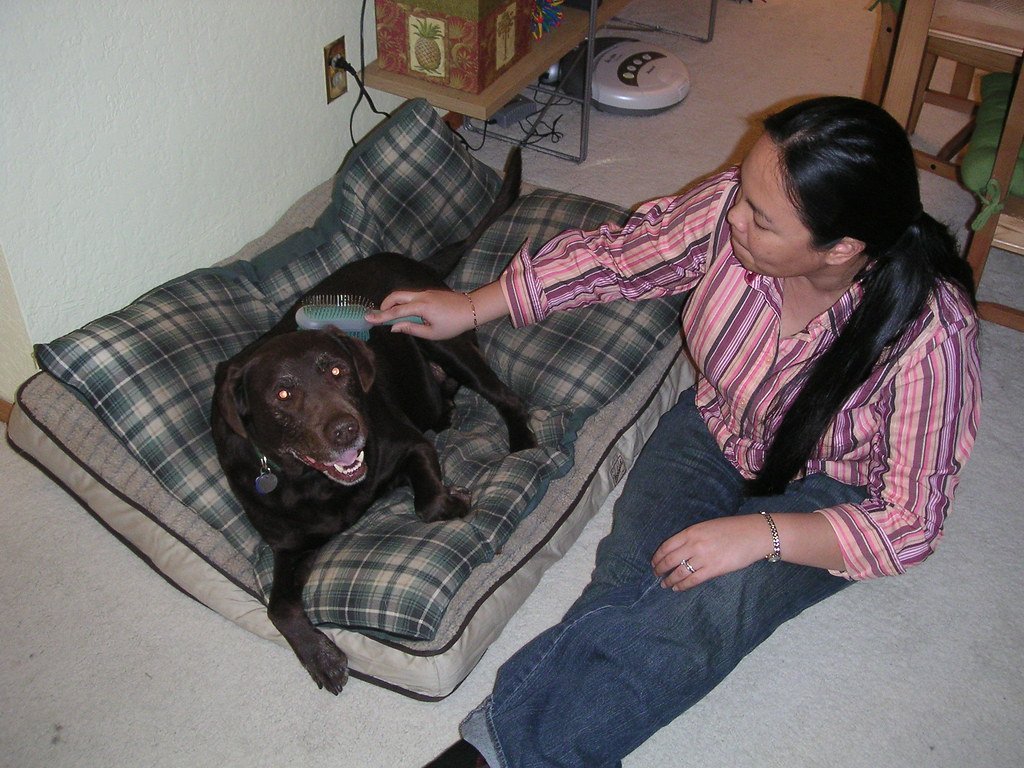
While some dogs require monthly spa appointments that cost more than your own haircuts, Labs keep things refreshingly simple. Labrador Retrievers benefit from being a short-haired dog breed with a short coat that is water-repellant, allowing them to easily wick away water and mud, meaning less maintenance for the person. A Labrador Retriever’s grooming needs are fairly low-maintenance — because they have short hair, they don’t really need haircuts, however, they do shed, especially in the spring and fall, and you’ll need to brush them at least once a week. Sure, you’ll find Lab hair on everything you own (it’s like glitter, but furrier), but you won’t need to budget for professional grooming every month.
The wonderful double coat that keeps the Labrador warm while retrieving in icy water also gives this breed top billing as shedders, but normally, their coats do fine with a quick weekly grooming. A good brush, the occasional bath, and regular nail trims are usually all it takes to keep your Lab looking handsome and feeling comfortable.
Adaptability That Fits Any Lifestyle
Whether you’re a city dweller in a high-rise apartment or a country family with acres to roam, Labs have this magical ability to adjust their expectations to match your reality. Labs can adapt to apartment living as long as they get out for enough exercise each day and have ample playtime and socialization with their family. Golden retrievers and Labrador retrievers are well-liked for their personable traits, being highly adaptable, great with families, and going as much as you want to go, which is really important to families with kids and their gentle nature. The secret isn’t that Labs don’t need exercise — they absolutely do — but rather that they’re content to get their energy out in whatever way fits your lifestyle.
A Lab in Manhattan will be thrilled with Central Park adventures and weekend hiking trips, while a Lab on a farm will patrol the property and swim in the pond. This highly intelligent breed is great for young and older pet parents, as they easily adapt and tend to have a balanced temperament. It’s like they understand that life comes in different packages, and they’re happy to fit into yours.
The Versatility That Amazes
If there were a Swiss Army knife in the dog world, it would probably be a Labrador. All Labs can make great Service Dogs because of their unmatched versatility — there is a lab for any and every job. The Lab personifies the definition of versatility—hunting, showing, family, dock diving, tracking, obedience — it’s as American as baseball, hot dogs, and apple pie.
Today, Labradors excel as service and guide dogs, family pets, scenting dogs for the military, customs and arson task force dogs, search and rescue dogs as well as hunting companions and performance dogs. Think about it: how many dog breeds can seamlessly transition from helping a veteran with PTSD to competing in agility trials to playing gently with toddlers to detecting contraband at airports? We choose the Labrador Retriever because of their versatility — they are as comfortable working in the field as they are lounging around the home, with natural hunt ability and amazing scent detection abilities. This adaptability means that as your life changes, your Lab can change with you.
The Emotional Connection That Lasts Forever
Here’s where Labs truly separate themselves from the pack — they don’t just live with you, they bond with you on a level that’s almost supernatural. As extremely loving people-pleasers, Labs tend to have a high demand for attention and physical contact, but this isn’t neediness — it’s genuine affection. They are highly social and thrive on human companionship, often forming strong bonds with their families, being intelligent and trainable, excelling in obedience and various roles. Stuck in an everlasting conquest for their family’s regard and affection, if they feel they’re being neglected or loved less they can turn inwards — these dogs, being that they’re so outwardly loving, trust easily.
Labs have this uncanny ability to sense your moods and respond accordingly. Bad day at work? Your Lab will bring you their favorite toy. Celebrating a promotion? They’ll match your excitement with full-body wiggles. Their playful and energetic nature makes them wonderful companions for active individuals and families, while their patience and gentle demeanor make them excellent with children and other pets, showcasing a perfect blend of work ethic and affectionate companionship.
Looking back at these fifteen reasons, it’s easy to see why Labradors have captured America’s heart for so long. They’re not just dogs — they’re family members, working partners, therapy providers, adventure companions, and loyal friends all rolled into one incredible package. While trends in dog ownership may shift and new breeds may claim the spotlight, the fundamental qualities that make Labs special remain timeless. In a world that often feels

Linnea is a born and bred Swede but spends as much time as possible in Cape Town, South Africa. This is mainly due to Cape Town’s extraordinary scenery, wildlife, and atmosphere (in other words, because Cape Town is heaven on earth.) That being said, Sweden’s majestic forests forever hold a special place in her heart. Linnea spends as much time as she can close to the ocean collecting sea shells or in the park admiring puppies.





